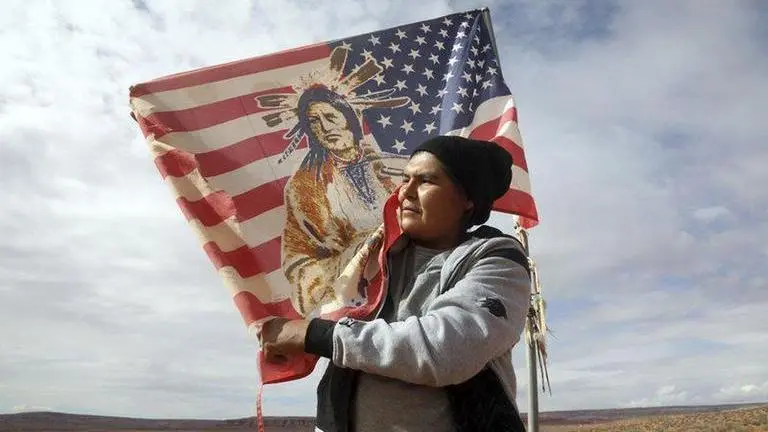Updated 18 October 2020 at 03:37 IST
US Election 2020: Native American voters demand better ballot access
With voters already lining up to cast early ballots across America ahead of the Nov. 3 general election, Native American voters whose ancestors called this land home before there was a U.S. president told The Associated Press they must overcome undue barriers of distance and language just to do their civic duty.
- World News
- 3 min read

With voters already lining up to cast early ballots across America ahead of the Nov. 3 general election, Native American voters whose ancestors called this land home before there was a U.S. president told The Associated Press they must overcome undue barriers of distance and language just to do their civic duty.
"If the middle class white people had to go through the same barriers that natives do throughout the United States in Indian country the turnout for those voters would plummet also," says OJ Semans.
Seamans is a Rosebud Sioux tribe member, a liberal voter and executive director of nonpartisan South Dakota-based voting rights group, Four Directions.
He says he's seen an unusual swell in voter participation on reservations rallying to participate in the presidential race between Republican candidate President Donald Trump and Democratic presidential nominee Joe Biden.
Advertisement
In the past two weeks, he says his organization has registered 10,000 tribal members across in voter drives across Arizona, Minnesota and South Dakota.
Semans says Native Americans from rural area have less voter participation, especially when it comes to mail-in ballots.
Advertisement
"A lot of the elders in Navajo speak the traditional language as their first language and so then you've got to find an interpreter to tell you what the ballot is," he says.
In addition, locating a house isn't easy in isolated areas such as Turtle Mountain Indian Reservation in northern North Dakota.
To cast a ballot tribal members need identification with a provable street address — something that isn't important to the 19,000 people who live on the remote 72-square-mile block of land where most streets have no signs.
Dr. Gavin Clarkson, a registered conversative voter and Choctaw Nation member, says he agrees with Semans that Tribal identification cards should always suffice for voter verification.
Clarkson notes some tribal members along the U.S. Southern border are born in Mexico but are U.S. citizen due to tribal affiliation.
Dr. Twyla Baker, a registered member of Three Affiliated Tribes on the Fort Berthold Indian reservation in North Dakota says she'd like to see a presidential candidate educated on tribal sovereignty, federal Indian law and who will push more tribal court powers to punish perpetrators of domestic violence.
Baker, an independent, says she already voted absentee by mail after being inspired by Democratic vice presidential nominee, Kamala Harris.
She hopes Harris can do more legislatively to help missing and murdered indigenous women.
She says she's encouraging young tribal members to vote early in-person or by mail, so that older members can vote without a crowd on Nov. 3.
"My politics, pre-date this form of governance on this continent," she says, "So I am going to vote towards what's going to benefit my tribal nation, my people, my children, future generations."
(Image Credits - AP File)
Published By : Associated Press Television News
Published On: 18 October 2020 at 03:37 IST
